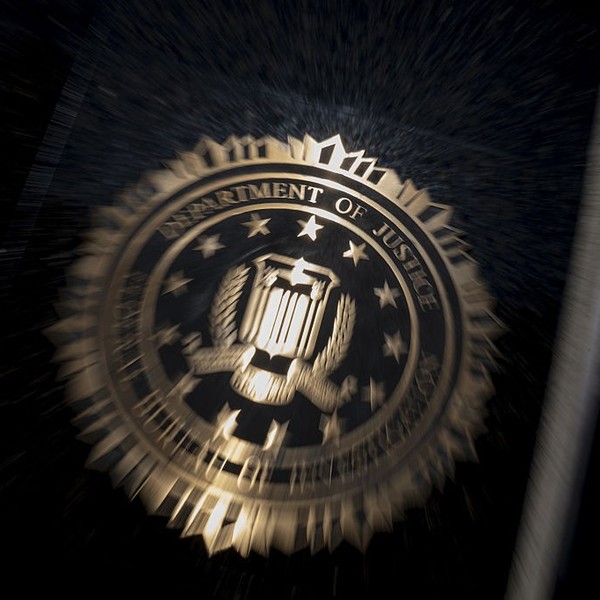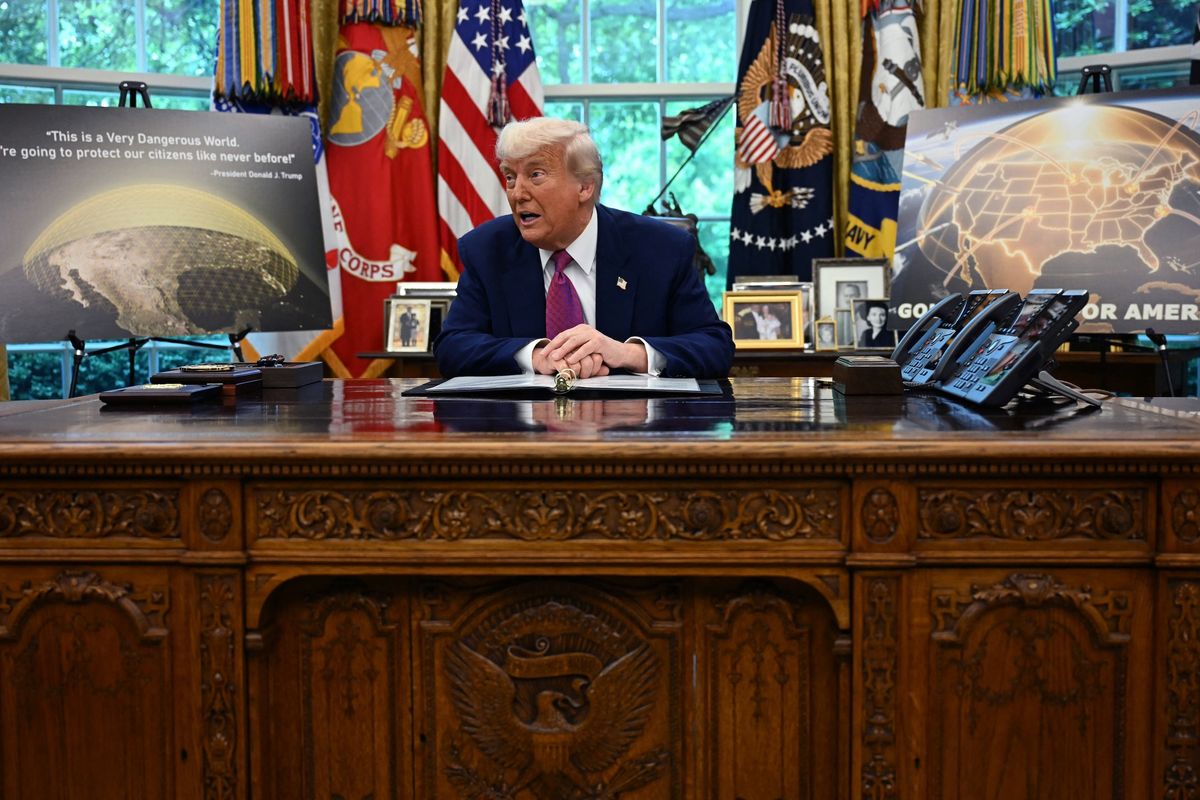Army Gen. Mark Milley indicated he would continue Pentagon independence from some of President Trump’s policies at his confirmation hearing to become the next chairman of the Joint Chiefs of Staff last Thursday before the Senate Armed Services Committee.
In doing so he would be following the examples set by former-Defense Secretary Gen. James Mattis and continued by current Joint Chiefs Chairman Gen. Joseph Dunford.
Most press coverage of the hearing focused on Milley’s response to a question posed by Sen. Angus King (I-Maine) about whether he would be willing to tell the President that he was wrong or would be willing to deliver to the President information he didn’t want to hear.
“Senator, and I would say it applies to Gen. Dunford and most of us who have seen a lot of combat,” Milley started. “We understand absolutely full well the hazards of our chosen profession, we know what this is about and we are not going to be intimidated into making stupid decisions. We will give our best military advice regardless of consequences to our self."
But it was in Milley’s answers to the committee’s pre-hearing questionnaire where he laid out areas where he has distinct differences from President Trump or the administration.
In that questionnaire, Milley said that while “the physical caliphate of ISIS has been destroyed, it has not yet led to the enduring defeat of ISIS.” As a result, U.S. military forces must remain in both Syria and Iraq and with coalition and partner forces, keep “actively maintaining pressure on ISIS cells, stabilizing liberated areas, and protecting our partners in the fight against ISIS.” Milley wrote that doing this will require U.S. military advisers assisting partners in Syria and Iraq “to conduct operations every day to root out remaining ISIS cells.”
Trump has backed off his earlier repeated claims that ISIS has been defeated, but he wants to end U.S. participation in the fighting in both Syria and Iraq.
In Afghanistan, Milley says American forces must wait until a negotiated settlement with the Taliban is achieved so that the country cannot again become a platform for strikes against the U.S. homeland. He warned that the U.S. cannot leave prematurely.
Milley also wrote that “Syria remains a competitive space with Russia who is working to widen its influence in the Middle East. While U.S. troops are in Syria to defeat ISIS, our presence also denies Russia unchallenged access and influence.”
Trump has not been concerned by any future role for Russia in Syria.
When it comes to Venezuela, Milley wrote, “It is difficult to provide a hypothetical threshold condition that would trigger military action.” He said that depending on security issues at the time, he believes it best “to encourage a negotiated settlement. Ideally, the settlement results in a peaceful transition and the holding of free and fair elections.”
Trump, early in the crisis, threatened military action in Venezuela. Last May, when an attempted coup against President Nicolas Maduro failed, then-acting Defense Secretary Patrick Shanahan announced a Pentagon meeting at which military options were being reviewed, but that talk quickly died down.
With regard to cyberspace, Milley wrote, “Strategic competitors such as Russia and China are conducting persistent malicious cyber campaigns to erode U.S. military advantages, threaten our infrastructure, and reduce our economic prosperity. We are taking the initiative to deny, disrupt, degrade, and expose these malicious cyber activities which threaten the Department, U.S. interests, and the American people.”
Trump, of course, has regularly referred to Vladimir Putin’s consistent denials of Russian cyber operations during the 2016 elections and at the recent G20 meeting, Trump jokingly told Putin not to interfere with the U.S. 2020 elections.
However, Milley wrote that, in effect, low-level cyber conflict is already taking place. “We need to compete daily by persistently engaging and defending forward to disrupt, deter, and deny malicious cyber activity. These operations range from intelligence collection and preparation to strengthening the security and resilience of our networks. The DoD can focus these efforts on adversaries that pose strategic threats to U.S. security and prosperity, while collaborating with our interagency, industry, and international partners.
Like his predecessors, Milley wrote he believes in climate change. “DoD faces a long-term threat from extreme weather events, rising sea levels, and increased flooding at coastal locations. If confirmed, I will work with DoD’s many stake holders in support of ongoing DoD actions to implement appropriate planning and design standards that account for projected sea level rise and extreme weather events.”
He pointed out, “The impacts are significant. Over $10 billion in two years creates a strain on our finite resources and forces us to make tough decisions if not supplemented with additional funding. Beyond the nominal cost, damages to infrastructure and delayed repairs also disrupted flight and ground training. It will take time to correct these training backlogs.”
Of course, Trump questions whether climate change exists and one of his first acts was to withdraw the U.S. from the international Paris climate change agreement.
When asked about Turkey’s acceptance of the Russian S-400 air and missile defense system, Milley wrote his recommendation would be to “discontinue the transfer of [U.S. fifth generation] F-35 aircraft” and end Turkey’s participation in the program. His reason was, simply, “If we allowed Turkey to receive and operate F-35s in close continuous proximity to the S-400, the S-400 radar system could provide the Russian military sensitive information on the F-35.”
Last Friday, the first deliveries to Turkey of the Russian S-400 elements took place, but the White House remained quiet and the Pentagon cancelled a previously announced press conference to discuss the U.S. response. Although the Trump administration has halted training of Turkish pilots for the F-35, it has not determined what to do with the four F-35s earmarked for the Ankara government and proposed Turkish participation in making parts for the aircraft.
On a personnel issue that Trump had raised early in his administration, Milley said he supported the current Pentagon policy with regard to transgender individuals, saying, “I am not aware of significant impacts to unit readiness based on transgender persons serving in the Army.” He added, “Any reduction in fully deployable service members that meet all medical standards would presumably have a detrimental effect on readiness.”
Milley does hold views consistent with most Trump policies.
He told the committee that when it comes to extension of the 2010, New START Treaty with Russia on strategic nuclear weapons, which runs out in February 2021, “continuity is an initial priority.” But he added, “We are still evaluating this calculus in light of many factors, including Russia’s pursuit of novel strategic-range nuclear systems not covered by the Treaty. Extending New START is in our interest only if the outcome improves the security of the U.S. and our allies and partners.”
He described Russia as sometimes “an unreliable partner in arms control measures,” citing its breach of the Intermediate-Range Nuclear Force Treaty (INF). Milley supported not only U.S. development of a conventional version of intermediate-range missiles but also continued development and production of the low-yield warhead for U.S. submarine launched strategic missiles. In testimony, he also supported Air Force development of the proposed stealthy, long-range, nuclear-armed cruise missile.
Milley described missile defense as viable against non-peer state actors, i.e. North Korea, Iran, but said, “Nuclear weapons are central to the deterrence of attack from the large and sophisticated nuclear arsenals of Russia and China, which U.S. missile defenses are neither intended to counter, nor capable of countering.”
He raised questions about whether there are cost-effective new ways of dealing with future missile defense techniques saying, “I assess that the efficacy of boost-phase intercept and space-based intercept programs is still an open question.”
Milley said obligations related to common defense of NATO allies “are crucial to U.S. strategic interests,” and “the linchpin of defense and deterrence against adversaries threatening the U.S. homeland and our vital interests in Europe.” Without mentioning the direct pressure that President Trump has put on the NATO alliance, Milley said, “It is critical that NATO Allies invest in, and make actual warfighting capability available to the Alliance at operationally relevant speeds, when required. If confirmed, I will work with NATO counterparts to ensure the Alliance carries out its commitments.”
He added, “As long as NATO is committed to a nuclear deterrence mission, it is important the U.S. maintain nuclear weapons [new B-61 tactical nuclear bombs] forward deployed in NATO countries.”
Milley summed up a lot in his very short opening statement saying, “Chairman Dunford has inspired the men and women of the armed services in conducting themselves with upmost professionalism and honor. If confirmed, I intend to use General Dunford’s example and steadfast approach as a personal example for me to follow.”
Given the musical chairs of Trump’s recent choices for civilian leadership at the Pentagon, stability on the military side is a welcomed change.
Read more in The Cipher Brief
LAUNCHING THIS MONTH: The Cyber Initiatives Group, powered by The Cipher Brief. The CIG is a public-private sector group of cyber professionals who share high-level thought and expert perspective on cyber issues impacting today’s businesses.
With a team of principals including Former CIA and NSA Director, General Mike Hayden (Ret.), former NSA Director, General Keith Alexander (Ret.), former Deputy NSA Director Rick Ledgett, former NCTC Director Matt Olsen, former Vice Chairman of the Joint Chiefs of Staff, Adm. Sandy Winnefeld and former DHS Deputy Undersecretary for Cybersecurity, Mark Weatherford, the new Cyber Initiatives Group will focus on connecting experts in ways that share best practices on cybersecurity.
If you’re interested in becoming an inaugural member or sponsor of this thought leadership group, please send an email to CIG@thecipherbrief.com.
‘I’m excited to facilitate this critical cyber conversation and to be working with leaders from across the private sector as they tackle the very difficult cyber issues that impact every company doing business today.’ – Michael V. Hayden
















